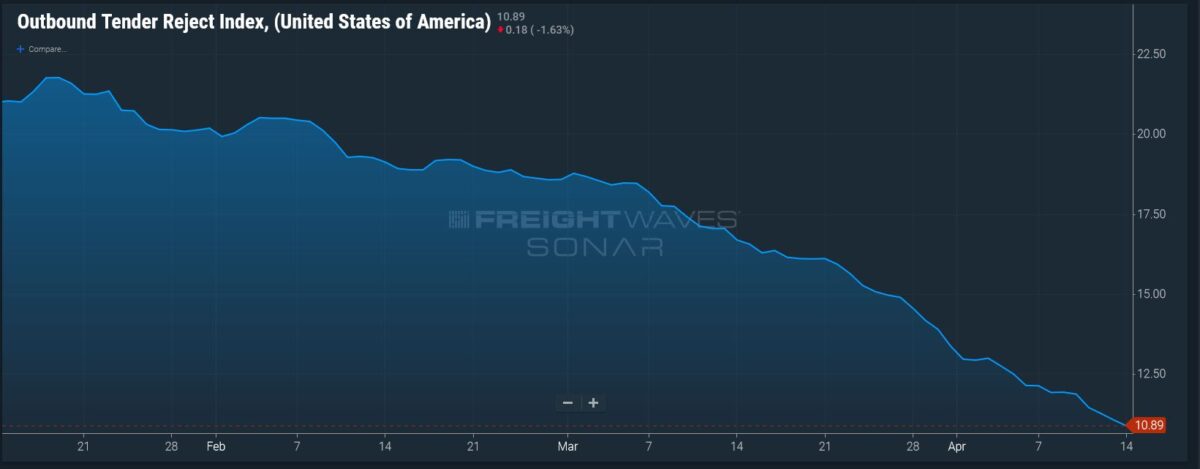With all the technological change driving the transportation industry, Brad Jacobs told a virtual audience of The Economic Club of New York that 3D printing was likely to disrupt transportation more than anything else.
The XPO (NYSE: XPO) CEO and founder of numerous companies said 3D printing is “the main long-term technology driver that is going to affect our industry.”
Jacobs conceded that 3D printing is taking awhile to gain traction in manufacturing. “But it’s going to happen,” he said, calling the number of potential applications for 3D printing “quite substantial.”
When it does, it is going to make a significant amount of manufacturing local. And that’s a big shift.
“Right now, the world is functioning on this outdated model of sourcing cheap labor overseas and then paying huge amounts to get it transported and consumed,” Jacobs said.
That current system is “pretty complex, with lots of costs involved and lots of opportunities for disruption,” he said.
But 3D printing will eliminate great chunks of that.
“Many goods will be made in your basement,” he said. Rather than moving goods, manufacturing will be more about moving the information and blueprints for producing many things that are now made elsewhere and then shipped many miles.
What Jacobs envisions is a “whole new paradigm” that will impact not only the transportation of manufactured goods — for which demand will drop — but also global relations. “This interdependence that spurred globalism won’t be as important anymore,” he said.
Even a war like the current Russia-Ukraine conflict wouldn’t be as disruptive in a future with widespread 3D printing, “because we wouldn’t be depending on those long supply chains as much.”
Discussing the current transportation market, Jacobs reviewed now well-known statistics that reflect a landscape that has weakened significantly and rapidly. Load-to-truck availability was 11 to 1 a few weeks ago; now it’s 4 to 1. He cited data on tender rejection rates and how much they have declined. Backups at the ports of Los Angeles and Long Beach have eased.

Transportation rates are “still elevated,” Jacobs said. “It’s a healthy environment but it’s not as strong as things were 30 days ago.”
Applications for truck driver jobs are up significantly, Jacobs said, “but don’t get too excited because we still have a severe labor shortage. It’s just not as severe.”
Jacobs is in the midst of transforming XPO into a pure-play LTL carrier. In just the past few weeks, it spun off its brokerage division, divested its European operations and sold its intermodal business.
He described current LTL pricing as “very firm” in contrast to the weakening truckload market.
Asked about acquisitions, Jacobs noted that valuations in the supply chain are down in the past month or two.
Ironically, one of the transportation companies that has seen its stock decline the most is XPO. It hit a 52-week low Thursday at $56.71 before rising slightly at the close. But it is still down 27.3% in the past year, 19.4% in the past three months and 17.7% in the past month.
Still, Wall Street analysts generally like the company; Barchart says XPO is carrying 15 strong buy ratings, one moderate buy rating and two hold ratings. Even with the recent decline in the company’s price, its price/earnings ratio is a modest 10.7 and it does not pay a dividend.
The XPO CEO was reluctant to get too bullish or bearish on the state of the economy and the transportation market.
“There are some times when with high conviction you know that business and the economy and the market are getting better,” Jacobs said. “So just load up the truck and everything is fine.”
There are other times when the market is showing signs that are “so overwhelmingly clear that things are going to get worse, so fasten your seat belt,” he added.
But now, he said, “we are not in either of those times.”
More articles by John Kingston
Daseke, responding to Moody’s report, says rates steady to rising
Perry at TIA: Excess trucking demand hit 26%, returning to normal
TIA panel to freight brokerages: Limit risk as buyers flow into market







